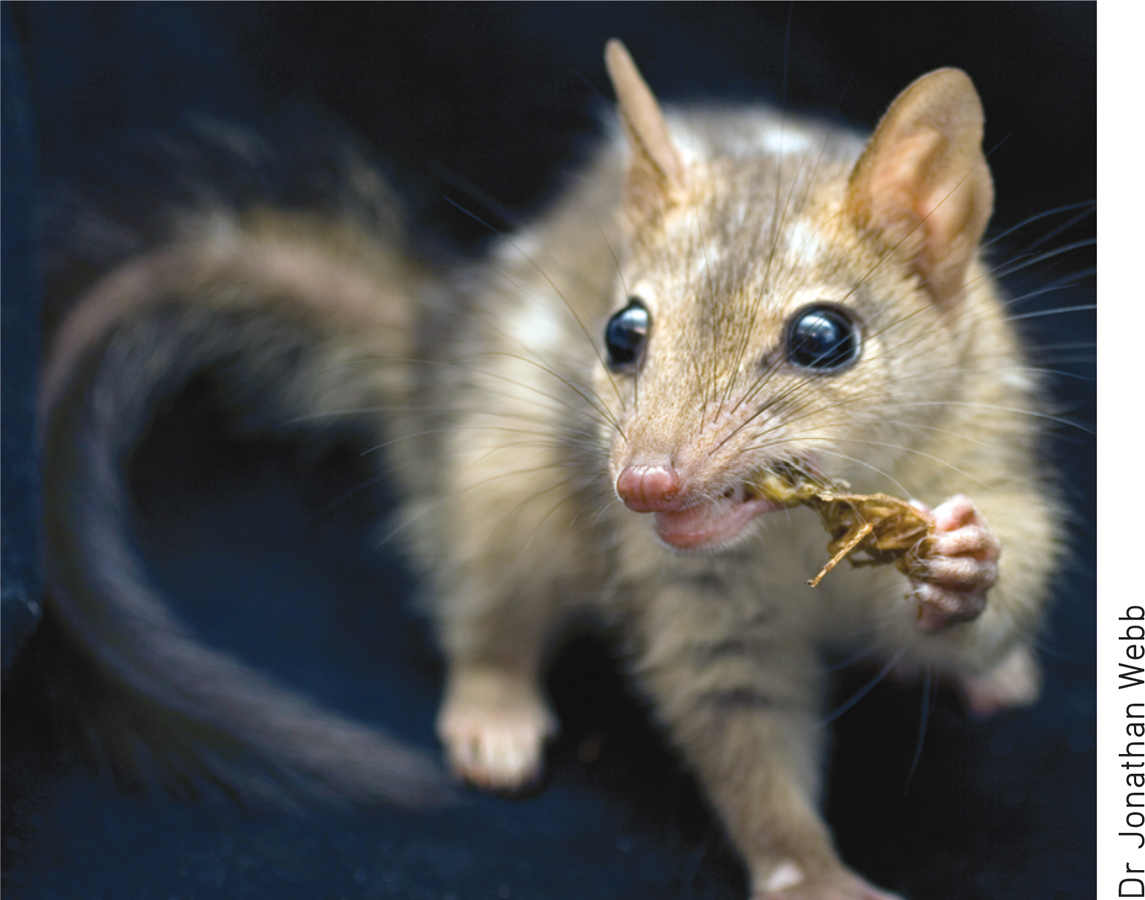
Saving an Endangered Species by Creating a Conditioned Taste Aversion The endangered northern quoll is a small Australian marsupial that seems to have a particular fondness for cane toads, a highly invasive, nonnative species. Quolls and other native species have been decimated by cane toads, whose skin, glands, and internal organs contain a deadly poison.
University of Sydney ecologist Stephanie O’Donnell and her colleagues (2010) successfully created a conditioned taste aversion to teach quolls to avoid eating cane toads. They fed young quolls tiny, dead cane toads that were laced with a nausea- s-
Ultimately, the scientists hope to develop ways to produce cane- g-
University of Sydney ecologist Stephanie O’Donnell and her colleagues (2010) successfully created a conditioned taste aversion to teach quolls to avoid eating cane toads. They fed young quolls tiny, dead cane toads that were laced with a nause
Ultimately, the scientists hope to develop ways to produce can
Dr Jonathan Webb